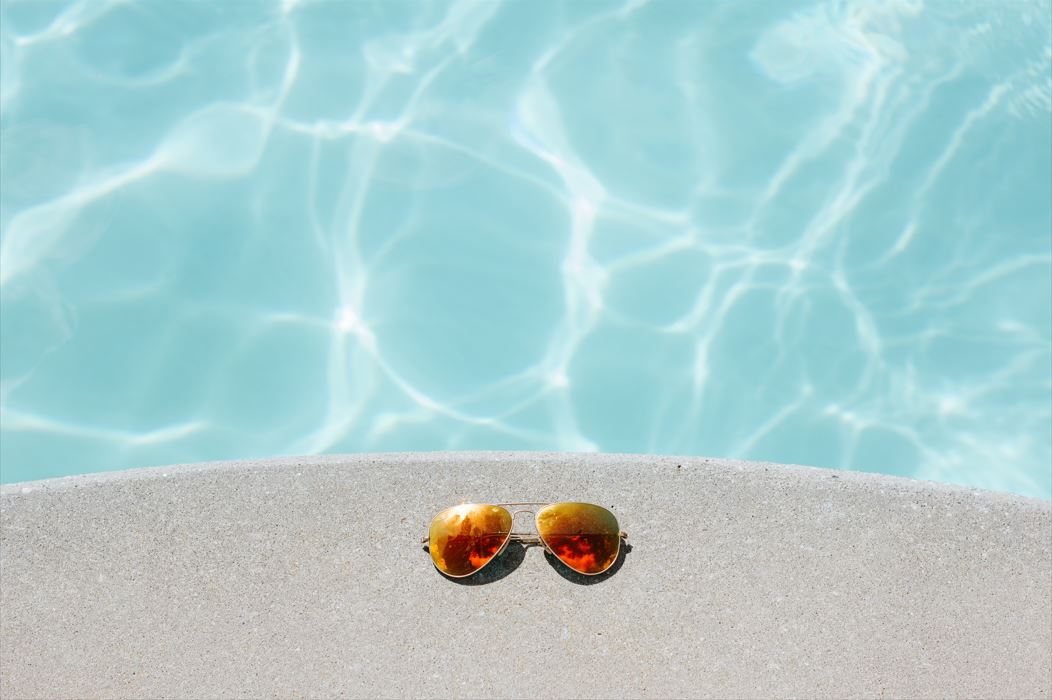Beating the Heat at the Pool?
11 Life-Saving Water Safety Tips to Remember!

One of the best ways to enjoy summer and fall in Florida is at the pool or the beach. Jumping into a body of water and relaxing with friends and family is a great way to forget any stress that may have been weighing you down.
But water can be deadly.
Drowning is known as the silent killer because it often happens with no warning and without a sound, so it’s easy to miss. Losing a loved-one to drowning, especially when it’s so preventable, is devastating to family members.
The Florida Department of Children and Families reports that more children under five died from drowning in 2021 than any other state. Sadly, this was a record for the state of Florida. The CDC also reports that Florida ranked 6th in the United States for the most unintentional drowning deaths.
Because so many Floridians are around water year-round, drowning is always a big risk.
When you’re out at the pool or the beach, please remember to follow these crucial tips to keep your family and your loved ones safe when you’re in the water.
1. Never swim alone. Even experienced swimmers should have someone in the water with them in case of a health emergency. If someone knows how to swim but hits their head and passes out in the water, the chances of drowning are high.
2. Learn CPR. Even if you have been trained in CPR, make sure you retrain (or recertify) every few years to stay fresh in your skills. Knowing basic first aid is also an important skill for emergencies, especially those that happen around the water.
3. Keep rescue equipment easily accessible. If you’re visiting a pool, look around to see where the rescue equipment is in case you need to use it. If it’s your own pool, make sure you have a life preserver, a shepherd's crook (a long tool with a rounded arm shaped like a hook) to pull in struggling swimmers. Coast Guard approved life vests are a must and it’s also a good idea to have a first aid kid nearby.
4. Teach your kids to float (a lifesaving skill) or get them enrolled in basic swim lessons. Many children seem like they are okay swimmers, but don’t have the endurance to swim for hours at the pool or the beach. Teaching them to flip on their back and float until they regain their energy is a crucial skill. Surprisingly, many parents are completely unaware of how important this skill is or how to teach it properly. That’s why swim lessons are so valuable in drowning prevention. Though they are never a reason to take your eyes off your children while swimming, swim lessons do make a huge difference. Knowing basic swimming skills can go a long way in helping kids to enjoy being in the water longer with less risk.
5. Install fences and gates around your pool. It’s also a good idea to keep your pool securely covered when you’re not using it. Toddlers move fast and can be in the water in a split second.
6. Distraction can be deadly. If you’re watching children swimming and playing in the water, be careful not to get into deep conversation or get distracted by your smartphone. There are many tragic stories of children drowning while their parents were supposed to be watching them, but were distracted.
7. Feet first is best. The water at beaches and pools vary in depth. Water often looks much deeper than it actually is, leading to thousands of emergency room visits every year from diving accidents. Diving into shallow water, or water with hidden rocks or debris under the surface can cause serious and sometimes fatal injuries.
8. Don’t assume a lifeguard is paying attention. Sadly, many drownings occur while a lifeguard is on duty. Make sure you are also watching your children and family closely.
9. Keep children within arm’s length. If your child goes under the surface right next to you, it’s much easier to grab them before drowning occurs—rather than having to swim out to them in a panic.
10. Put lifejackets on children who don’t know how to swim or are beginner swimmers. This is an extra measure of safety that’s worth the hassle. Knowing your children are wearing a Coast Guard approved safety life jacket is great insurance while swimming. Don’t settle for a non-Coast Guard approved life jacket, as it can sometimes mean the difference between life and death.
11. Reach and throw—don’t go! You’ve probably heard the saying. If you see someone struggling in the water, don’t jump in to save them. People drowning often panic and pull you under water with them, putting your life at risk. Instead throw out a floatation device, pool noodle, or a long pole and yell for them to grab onto it. Then call 911 for help.
While there are many more water safety tips to follow when you’re enjoying the Sunshine State’s endless opportunities to splash around, the 11 above will help prevent a happy day at the pool or beach from turning into a tragedy.
Stay safe out there, and enjoy summer and fall in the water!
Looking for quality insurance coverage for your Florida home and pool?
Call Galezano Insurance today at 239-202-0233